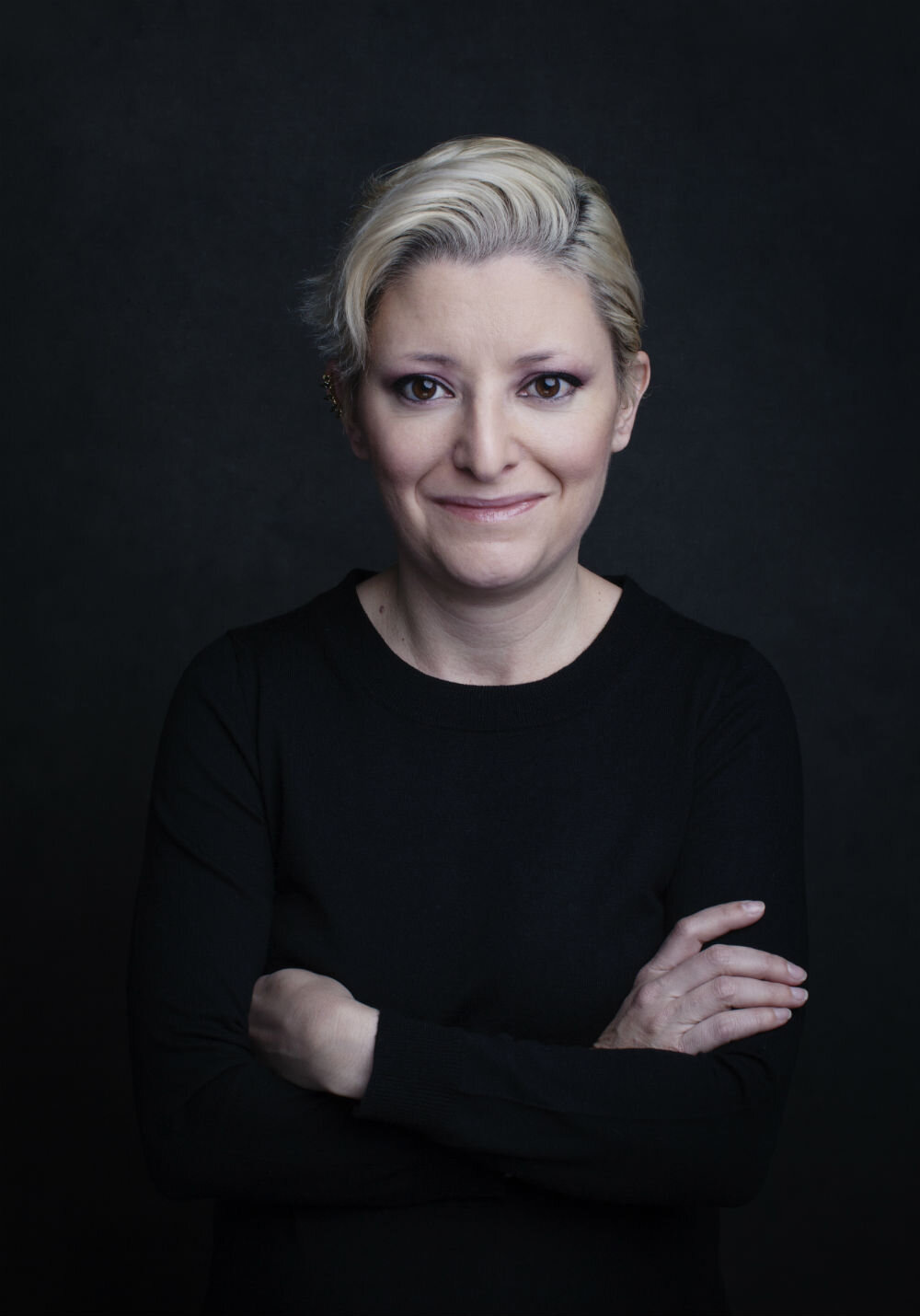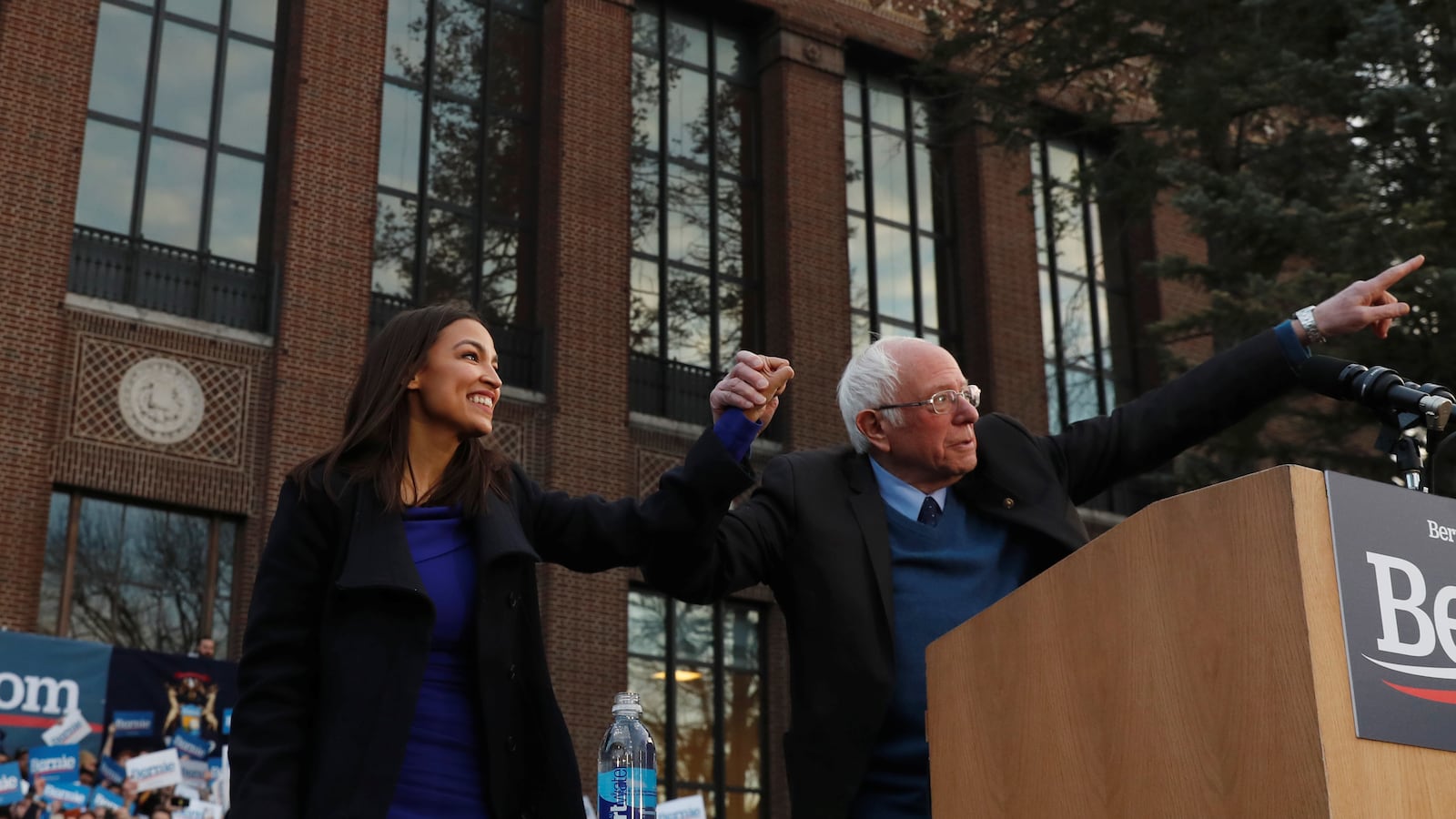The primary contests for Bernie Sanders have not gone as he’d hoped and, while the election isn’t over yet, the question now looms about what happens to the progressive movement after Bernie Sanders.
I think the answer to that was never centered around the presidential race to begin with. Which should be intuitive because the future of the progressive movement can’t be a 78-year-old white guy who’s been in politics for several decades, almost by definition. Bernie is a pioneer, not the future. The future is Alexandria Ocasio-Cortez. (And Ayanna Pressley. And Ilhan Omar. And Rashida Tlaib. And Katie Porter. That they are all women is not a coincidence. That they are all, except for Porter, women of color isn’t either.)
In the past few weeks, Ocasio-Cortez has been asked repeatedly whether she would support the Democratic nominee for president if he or she wasn’t Bernie Sanders, and her replies have been affirmative and unambiguous.
As to Sanders, whose campaign she helped revive with her endorsement after his heart attack in October, she was clear Tuesday evening: “There’s no sugar-coating it. Tonight’s a tough night. Tonight’s a tough night electorally,” Ocasio-Cortez said on an Instagram live chat, noting the stark “generational divide in the Democratic Party on health care, on climate change, on foreign policy.”
She noted that “Our generation seems to have a streak of progressivism that doesn’t seem to be going away soon,” and that, while “movements aren’t necessarily electoral,” as “people get better at learning to vote over time.”
During her short tenure in Congress, Ocasio-Cortez has already been a powerful agenda-setter for Democrats in ways that long-term elected Democratic officials who skew more moderate—establishment Democrats, as Bernie would put it—have not always embraced or even felt threatened by. She’s also been visible, vocal, and in hearings, unintimidated by process or her peers and impeccably prepared. And to the extent that this has made her the unofficial bogeyman of the right, she has turned it into a powerful microphone for educating people about what it means to need the things a progressive agenda has to offer—universal health care, upward mobility for younger people suffering from decisions made by the prior generation, justice and equality for marginalized people—and how it can actually be achieved.
Despite the incessant howling on Fox News about the horrors of socialism, 76 percent of Democrats say they’d vote for a socialist president, and AOC’s telegenic accessibility has the potential to make democratic socialism less scary to the 24 percent who are holding out. She natively understands media in a way that her priors don’t and leverages it to speak to the left about the need for more progressive work and the right, simply because she has their attention.
At the core, there is nothing on Sanders’ agenda that is not also on Ocasio-Cortez’ agenda, and Sanders recognizes that. She is his most visible and powerful surrogate. She speaks to the younger voters that are the most vibrant and crucial part of his coalition and also models for them a pathway that works in the context of the flawed and, in certain ways, increasingly more fragile government we have. But she also advances a rhetoric of reform that leaves room for new constituencies, and that may be the key difference between AOC and the Sanders campaign, if not Sanders.
There is a small but vocal portion of the Sanders base that is accelerationist in nature, and cannot really think about what it would do with power within the Democratic party in any meaningful way because it’s mostly concerned with dismantling the party—punitively, and for crimes the party has certainly committed (bowing to special interests, aligning itself with undemocratic policies, choosing between corporate interests and vulnerable populations and picking the former).
But there are a lot more progressives who view the existing system of government and the two-party system as the most obvious, maybe only way, to get progressive policies enacted. And hostility toward the party in the abstract does not, for many Democratic voters, translate to hostility toward Democrats generally. You can think the party at the most elite powerful levels is full of corrupt insiders and still like your local representative, who you think has your back. You can also think that some of the best progressive advances that we’ve made as a country were accomplished by Democrats in spite of those problems.
Ocasio-Cortez seems to be able to thread this needle in a way that Sanders can’t. She’s pushed back against what she perceives to be party regressiveness—refusing to pay DCCC dues after they banned vendors who worked on her campaign—but also exhibiting a willingness to work with people (Republicans even; Ted Cruz, even!) where they can potentially agree on a progressive objective.
So it’s not going to feel like a win for progressive voters this week at the presidential level, but the baton is already being passed, and to a progressive standard bearer who can hold insiders to account and maintain the excitement Bernie Sanders’ movement built with younger voters, while simultaneously pulling new people into the progressive movement and getting things done within an extremely flawed system. The progressive movement is bigger than any single candidate in any case, but if we’re going to choose avatars by necessity, we still have exciting options.






